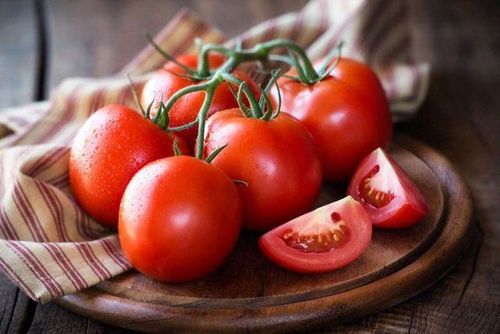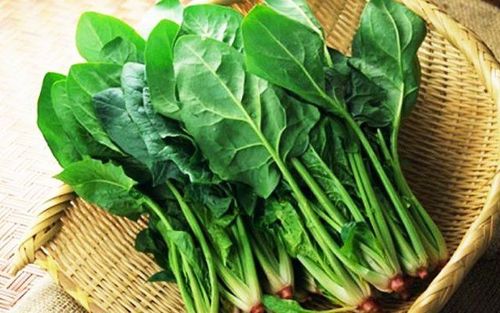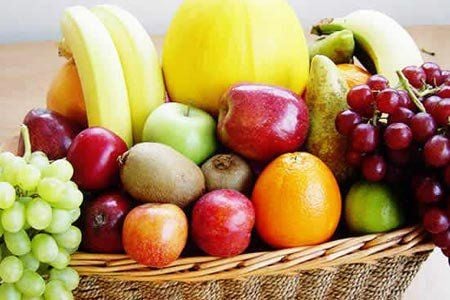Breastfeeding mothers often worry about what to eat or not to eat after giving birth to keep their baby healthy. One of the healthiest foods you should incorporate into your breastfeeding diet is green vegetables. Most vegetables are rich in vitamins and nutrients, but some vegetables are especially good to eat while breastfeeding because they can increase milk supply. So what vegetables should you eat after giving birth and what vegetables increase milk supply?
1. Lettuce
Lettuce is a low-calorie, high-water vegetable that is a good part of a balanced diet for breastfeeding mothers.
Lettuce contains calcium, iron, magnesium, phosphorus, potassium, sodium, and zinc, along with vitamins such as thiamin, riboflavin, niacin, folate, vitamins A, B6, C, E, and K. Iron is essential for breastfeeding mothers and infants. Iron helps prevent anemia and cognitive impairment in infants that can occur due to inadequate iron intake. Full-term infants usually have sufficient iron stores until 4-6 months of age. Green leafy vegetables such as spinach are a good source of plant-based iron. Plant-based iron is found in plant-based foods but is often not as well absorbed by the body as animal-based iron (such as meat, seafood, and poultry). However, you can improve absorption by eating it with foods rich in Vitamin C, such as a glass of orange juice or kiwi, during your main meal or snack.
2. Tomatoes
Another healthy food for breastfeeding mothers is tomatoes. Tomatoes contain 94.5% water and are a superfood rich in vitamins A, C, and folic acid. Tomatoes are packed with antioxidants that help breastfeeding mothers feel healthy, such as alpha-lipoic acid, lycopene, choline, folic acid, beta-carotene, and lutein.

3. Okra
If you’ve ever cooked okra, you know that okra can produce a slimy substance (some call it mucilage) that is great for thickening soups, and stews, or eating okra as a side dish. The mucilage is made up of sugary residue called polysaccharides and proteins. You can remove the mucilage by soaking okra in vinegar for 30 minutes before cooking, then rinsing and patting dry. Okra is a good source of vitamins A, B, C, and E, thiamin, niacin, and folate. It also contains minerals like calcium, phosphorus, potassium, magnesium, iron, and zinc to help keep you healthy while you’re nursing your baby.
4. Asparagus
Asparagus is a good source of fiber, vitamins A, C, E, K, chromium, and folate, which work well with vitamin B12. Studies show that folate and B12 act as brain boosters to help prevent cognitive decline, which is essential for any new mother caring for a newborn.
Asparagus also contains tryptophan, an essential amino acid that can stimulate prolactin, the milk-producing hormone. According to nutrition researchers, mothers who regularly eat vegetables help their newborns get accustomed to vegetables through breast milk, and when they start solid foods, the babies may be more inclined to enjoy eating vegetables.
5. Spinach
Spinach is a rich source of calcium, iron, vitamins K, A, and folate. Mothers should note that raw spinach should not be eaten because it contains oxalic acid, which can interfere with the absorption of essential nutrients such as calcium and iron. But when cooked, spinach will help you absorb the content of vitamins A and E, protein, fiber, zinc, thiamin, calcium, iron, beta-carotene, and lutein.

6. Kale
If you are wondering what vegetables increase milk production, kale is a great choice. Kale is rich in vitamins A, B1, B2, B6, and C and manganese, fiber, calcium, potassium, iron, magnesium, omega-3 fatty acids, phosphorus, protein, folate and niacin. Breastfeeding mothers can eat kale raw or cooked or blended into smoothies to take advantage of all the nutrients of this vegetable. Calcium and Vitamin D are important for bone health for both mother and baby. You can get plenty of calcium by incorporating broccoli, kale, and collard greens into your diet.
These are considered good vegetables, containing high nutritional value for mothers during breastfeeding. Therefore, mothers should consult and come up with a scientific diet for the health of mother and baby.
However, you should also keep in mind that everyone is an individual, so certain vegetables or foods may be suitable for one person but cause allergies in another. Therefore, if you have any doubts or concerns, it's advisable to consult a nutrition expert at Vinmec International General Hospital to receive the best advice.
Please dial HOTLINE for more information or register for an appointment HERE. Download MyVinmec app to make appointments faster and to manage your bookings easily.
Reference source: webmd.com - healthline.com
To arrange an appointment, please call HOTLINE or make your reservation directly HERE. You may also download the MyVinmec app to schedule appointments faster and manage your reservations more conveniently.








